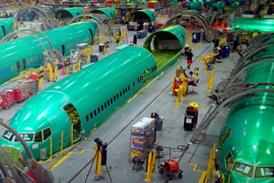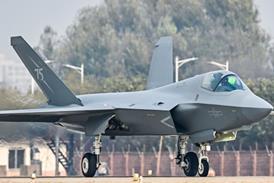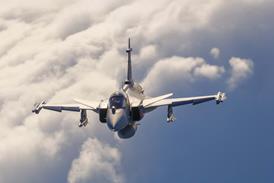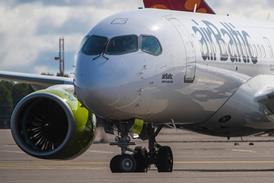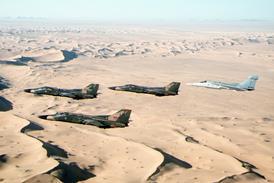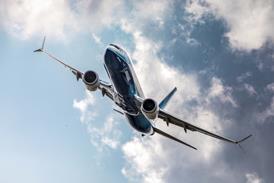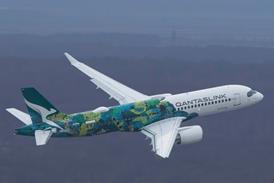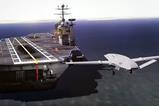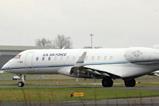Leaders from the USA’s many global security partners are congratulating returning American president Donald Trump on his re-election to the country’s top office.
Trump prevailed in the 5 November nationwide elections, with the Associated Press calling the race for the once-and-future president on 6 November. Kamala Harris, the sitting vice-president and Trump’s electoral opponent, phoned Trump to concede the race later that day.
Trump’s pending return to the White House – inauguration day is 20 January – has cast the global security order into uncertainty. During his first tenure as president, from 2017-2021, Trump pressured many of the USA’s traditional allies in Europe and Asia on matters of defence, while seeking closer relations with historic adversaries like North Korean dictator Kim Jong Un.
Much of Trump’s consternation with America’s allies centred on a perceived lack of financial commitment to defence spending, with the reality-television-star-turned-head-of-state arguing NATO, Japan, South Korea and others had become complacent and dependent on military protection from Washington.
Then-president Trump went as far as suggesting the USA might not honour the Article 5 collective-defence commitments of the North Atlantic Treaty Organization for alliance members not meeting spending targets.
It remains unclear exactly how Trump’s next term may impact world affairs, following a campaign overwhelmingly focused on domestic issues.
But his soon-to-be counterparts globally are wasting no time in congratulating Trump on his election victory, with many alluding to concerns about the future of global security after the change of government.
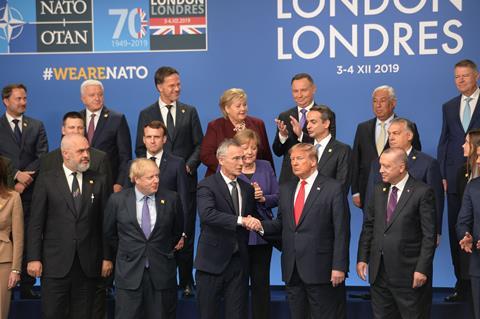
“I truly look forward to working closely with you to further bolster the Japan-US Alliance, and [to] cooperate to promote a free and open Indo-Pacific,” says Japanese prime minister Shigeru Ishiba.
Japan hosts thousands of US military personnel and several air bases that are seen as key to projecting American power in Western Pacific and deterring an increasingly assertive China.
With his early embrace of Trump, Shigeru may be adopting the strategy of deceased prime minister Shinzo Abe, who was known for his close and effective relationship with Trump during the president’s first term.
Elsewhere in Asia, other security-challenged allies are congratulating the president-elect, perhaps hoping to head off potential disputes.
Taiwan’s president Lai Ching-te offered is “sincere congratulations” to Trump for the electoral victory.
“I’m confident that the longstanding Taiwan-US partnership, built on shared values and interests, will continue to serve as a cornerstone for regional stability and lead to greater prosperity for us all,” Lai says.
Taiwan is considered among the USA’s most-vulnerable security partners, with Chinese officials having established a policy goal of bringing the self-governing island under control of the communist government in Beijing.
Although Trump, during his campaign, expressed a desire to avoid US involvement in overseas wars, he also cultivated a confrontational relationship with Beijing during his first term, effectively portraying China as a malign adversary and permanently reorienting Washington’s trade and defence efforts toward countering Chinese influence around the world.
The US-China relationship continued to deteriorate under Trump’s successor Joe Biden, with relations between the two countries arguably reaching the lowest point since diplomatic relations were established in the 1970s. Beijing has declined to weigh in on the American election, with the Chinese foreign ministry describing it as an internal affair on 6 November.
”We respect the choice of the American people,” Beijing said, as the votes were being tallied.
When asked how Beijing expects the election to impact China’s relations with the USA, Chinese diplomatic representative Mao Ning said her country will continue to engage with Washington, guided by “principles of mutual respect, peaceful coexistence and win-win cooperation”.
Contrasting with his previously combative approach toward China, Trump sought warmer relations with long-time foe North Korea during his first presidential term. Among his major diplomatic achievements was participating in the first-ever summit between a US president and Pyongyang’s leader.
That 2018 event followed tense period of rhetorical antagonism, with Trump famously threatening Kim Jong Un with “fire and fury” over North Korea’s testing of long-range missiles.
With the Pyongyang government having recently deployed troops to fight alongside Russian troops in Ukraine, South Korean president Yoon Suk Yeol appears keen to shore up his country’s all-important alliance with USA.
“Under your strong leadership, the future of the ROK-US alliance and America will shine brighter,” Yoon said on 6 November, using the acronym for Republic of Korea, the South’s formal moniker.
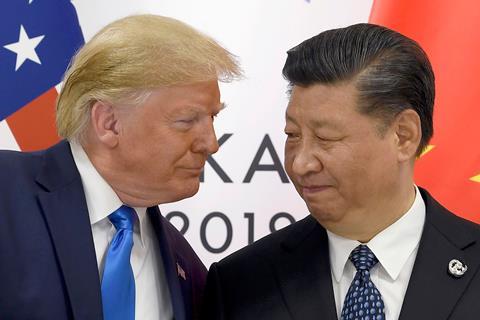
Events are unfolding similarly in Europe, where Russia’s war of aggression in Ukraine will soon enter its fourth year. Washington has been a key backer of Ukraine’s war effort in both materiel and money, despite allegations of an overly cautious approach by the Biden Administration from some corners of the continent.
Ukrainian president Volodymyr Zelensky rushed to describe the 5 November results as “impressive election victory” for Trump, noting he met with candidate Trump in September to discuss a victory plan for Ukraine.
“I appreciate President Trump’s commitment to the ‘peace through strength’ approach in global affairs. This is exactly the principle that can practically bring just peace in Ukraine closer,” Zelensky says. “I am hopeful that we will put it into action together. We look forward to an era of a strong United States of America under President Trump’s decisive leadership.”
Trump has been a vocal critic of the billions of dollars in military aid provided to Ukraine by Washington, calling the support a bad investment. Much of the spending goes to US arms manufacturers, fuelling the domestic economy.
In a September presidential debate, Trump also declined to express support for a Ukrainian victory in the conflict, when asked if he wanted Kyiv to prevail.
“I want the war to stop,” Trump said. “I think it’s in the US’s best interest to get this war finished and just get it done.”
While Ukraine is classified a lesser “security partner” in the Pentagon, the USA also has 31 treaty-bound allies in Europe, which it is obliged to defend as part of the NATO alliance.
Recently installed NATO secretary general Mark Rutte on 6 November said he has already reached out to congratulate Trump on his re-election, saying, “His leadership will again be key to keeping our alliance strong”.
“We face a growing number of challenges globally, from a more-aggressive Russia, to terrorism, to strategic competition with China, as well the increasing alignment of China, Russia, North Korea and Iran,” Rutte says. “President-elect Trump demonstrated strong US leadership throughout his first term in office – a term that turned the tide on European defence spending, improved transatlantic burden sharing and strengthened alliance capabilities.”
Trump’s hard stance toward spendthrift members of Euro-Atlantic military bloc, combined with the outbreak of Europe’s largest land war in nearly a century, produced a significant uptick in defence spending on the continent. A record 23 of 32 NATO members are now meeting the alliance’s target of spending at least 2% of gross domestic product on military operations and procurement.
Even leaders from Europe’s best-protected powers, such as nuclear-armed France, are rushing to embrace Trump, appealing to the president-elect’s affinity for tough talk.
“Ready to work together as we did for four years,” said French president Emmanuel Macron on X in the early hours of 6 November. “With your convictions and mine. With respect and ambition. For more peace and prosperity.”
Across the border in Berlin, German chancellor Olaf Schultz was far more measured in his response.
“America has voted,” Shultz said on X, noting that Germany will remain a “reliable transatlantic partner”.
“Germany and the US share a partnership and friendship that has grown over decades. We believe that we are better off together. We can achieve much more working together than against each other,” Schultz adds.
He also congratulated Trump for his re-election and expressed hope that Germany and the USA will continue working toward bettering the well-being of both counties’ citizens.
Despite that stated hope, Germany is already taking steps to bolster its own military capability. The government in Berlin on 6 November announced plans to ”reintroduce national service”, with the goal of strengthening national defence and building up a “strong reserve”.
”Under the new system, men will have to fill out a digital questionnaire when they turn 18, while women will have the option of doing so,” the German government says. “The Bundeswehr will choose the best and most motivated candidates, who will do military service for a period of six to 23 months.”
The new legislation was approved by the German cabinet on 6 November and will be debated in parliament early next year.
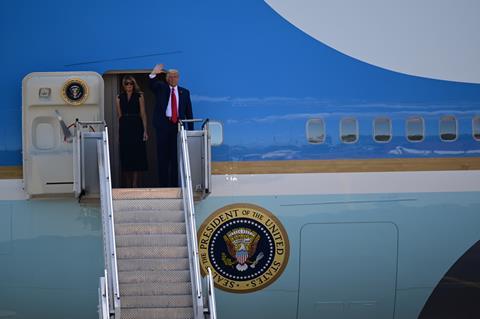
In the Middle East, where another regional war continues to rage, Israeli prime minister Benjamin Netanyahu hailed Trump’s return to office, describing the achievement as “history’s greatest comeback”.
“Your historic return to the White House offers a new beginning for America and a powerful re-commitment to the great alliance between Israel and America,” Netanyahu wrote on X, sharing a photo of himself and Trump.
Candidate Trump and his Republican party allies made staunch support for Israel a plank of the 2024 campaign platform. Long-serving Israeli leader Netanyahu had a challenged relationship with Democratic presidents Barrack Obama and Joe Biden, but enjoyed a robust political alliance with Trump.
Israel is likely unique among US allies in not wondering where it stands with the man who in January will become the 47th American president.
Under a web of collective defence pacts, Washington has treaty commitments to defend each of its 31 fellow NATO members, and Japan, South Korea, Australia, New Zealand, the Philippines and much of Latin America.
While no president has authority to unilaterally nullify or withdraw from treaties that have been approved by the US Senate, the American commander-in-chief has sole authority to order US troops into battle.
While Biden and other modern presidents have used the language of “iron clad” to describe the USA’s commitment to its mutual defence agreements, Donald Trump has always opted for a transactional approach to American security guarantees.
That ambiguity appears set to inject a large amount of uncertainty into an already unstable security environment, with the American electorate signalling it is increasingly disinterested in the worries of traditional allies across the sea.


